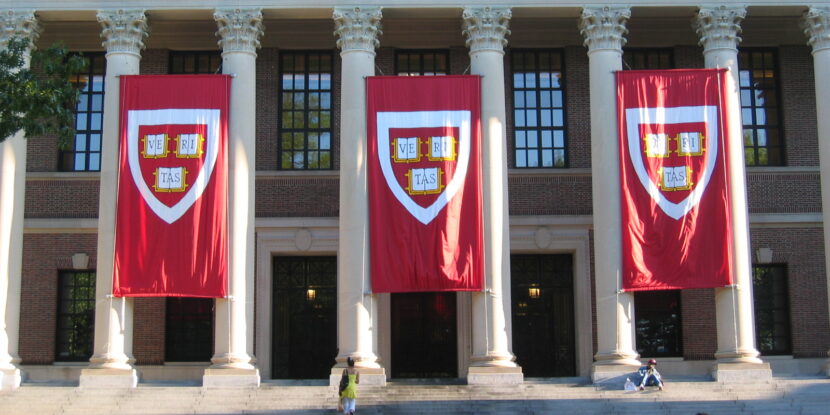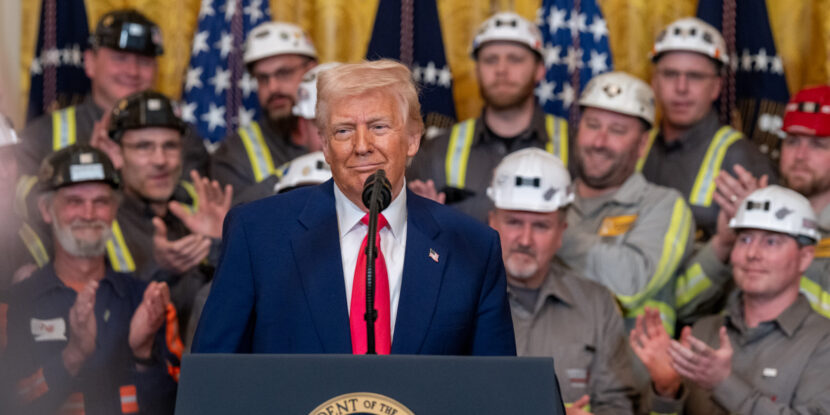
PULSE POINTS:
❓What Happened: The Trump administration has announced an additional $450 million cut in federal grants to Harvard University, citing issues of liberal bias and antisemitism.
👥 Who’s Involved: The Trump administration, President Donald J. Trump, Harvard University, the U.S. Department of Education, and Harvard President Alan Garber.
Your free, daily feed from The National Pulse.
📍 Where & When: Washington, D.C., and Harvard University, announcement made on Tuesday, May 13, 2025.
💬 Key Quote: “There is a dark problem on Harvard’s campus, and by prioritizing appeasement over accountability, institutional leaders have forfeited the school’s claim to taxpayer support,” stated a federal antisemitism task force.
⚠️ Impact: Harvard faces a freeze on $2.2 billion in federal funds, the loss of an additional $450 million in grants, and potential revocation of its tax-exempt status and foreign student program eligibility.
IN FULL:
The Trump administration has announced an additional $450 million cut in federal grants to Harvard University, intensifying its pressure campaign against the Ivy League institution over its toleration of anti-conservative bias, antisemitism, and noncompliance with federal rules. A letter sent on Tuesday to the university from a federal antisemitism task force confirmed the cuts to grants and reiterated that an additional $2.2 billion in federal funding for Harvard remains frozen due to the intransigence of the academic institution’s leadership.
According to the letter, Harvard continues to foster a culture of “virtue signaling and discrimination” and criticizes its leadership for failing to address ongoing issues. “There is a dark problem on Harvard’s campus, and by prioritizing appeasement over accountability, institutional leaders have forfeited the school’s claim to taxpayer support,” the letter states.
The Trump administration has been increasingly critical of Harvard, particularly after the university openly defied federal directives to curtail pro-Hamas demonstrations and eliminate discriminatory diversity, equity, and inclusion (DEI) policies. Last week, the Department of Education announced that Harvard would not receive any new federal grants until it complies with government rules and stipulations, which include leadership changes, revised admissions policies, and audits to ensure ideological diversity.
President Donald J. Trump has also called for Harvard to lose its tax-exempt status, while the Department of Homeland Security (DHS) has threatened to revoke the university’s eligibility to host foreign students. Even House Republicans are taking umbrage with Harvard and have included increased taxation of non-religious university endowments in their budget reconciliation bill. Notably, Harvard and other elite U.S. universities have long been criticized for managing their endowments less like academic institutions and more like hedge funds, leading to calls for them to be treated for tax purposes as the latter.
In response, Harvard President Alan Garber has disputed the allegations, describing the sanctions as an “unlawful attempt to control fundamental aspects of our university’s operations.” Garber insisted that the university is nonpartisan and has taken measures to address antisemitism on campus. Currently, the university is suing the Trump administration over the funding freeze.

PULSE POINTS:
❓What Happened: Carrier announced a $1 billion investment in U.S. manufacturing over five years, creating 4,000 jobs.
👥 Who’s Involved: Carrier, led by Chairman and CEO David Gitlin, and President Donald J. Trump.
Your free, daily feed from The National Pulse.
📍 Where & When: Announced Tuesday, May 13, 2025, with investments across the U.S. manufacturing sector.
💬 Key Quote: “We are building for the future by creating high-quality, skilled trade careers and empowering American workers to lead the next generation of manufacturing,” said David Gitlin.
⚠️ Impact: The investment will expand facilities, build a new manufacturing site, and accelerate R&D in energy solutions, boosting U.S. manufacturing and innovation.
IN FULL:
Carrier, a global leader in climate control and energy solutions, revealed plans on Tuesday to invest $1 billion in U.S. manufacturing over the next five years, a move expected to create approximately 4,000 jobs. The company announced the initiative, which focuses on expanding manufacturing, innovation, and workforce development, in a press release.
The investment will include expanding current facilities and building a new advanced manufacturing site. These efforts will support the production of critical components for heat pumps and battery assemblies, both integral to Carrier’s Home Energy Management System (HEMS).
“This investment marks the next chapter in our commitment to U.S. manufacturing,” said Carrier’s Chairman and CEO David Gitlin. “We are building for the future by creating high-quality, skilled trade careers and empowering American workers to lead the next generation of manufacturing.”
The initiative will also drive research and development in next-generation technologies, including liquid cooling for data centers and battery-enabled energy and power solutions. These advancements will be spearheaded by Carrier Energy, an in-house startup focused on optimizing home energy use and enhancing grid flexibility.
Gitlin emphasized the broader implications of the investment, stating, “At the same time, it positions Carrier to capture the tremendous growth ahead in our industry and deliver smart, differentiated solutions for our customers.”
The announcement aligns with broader efforts to bolster U.S. manufacturing, with President Donald J. Trump enacting trade tariffs to protect domestic industry and American workers from foreign predation. The White House’s investment tracker highlights numerous major commitments, attributing them to trade and tax policies that encourage domestic production.
While the investment announcement is welcome news, Carrier made a similar pledge in December 2016 regarding an effort to save American jobs, but failed, in part, to uphold its end of the agreement.
show less

 1 month ago
3
1 month ago
3








 English (US) ·
English (US) ·